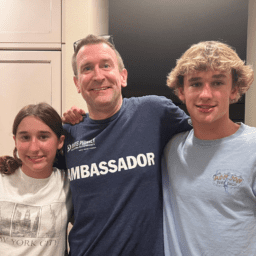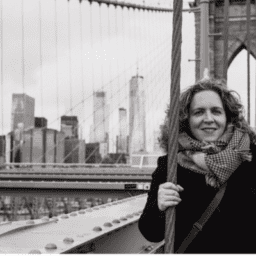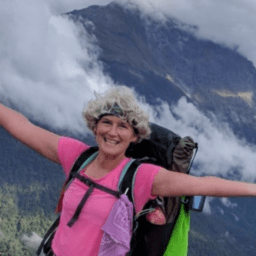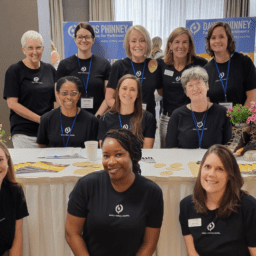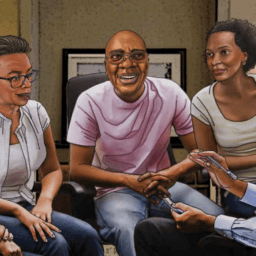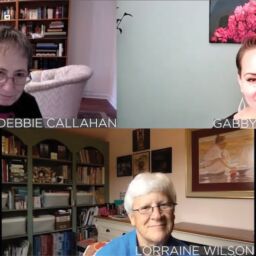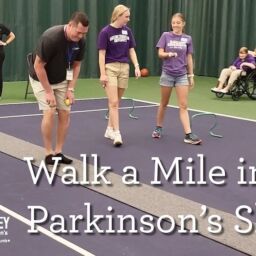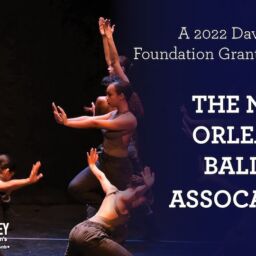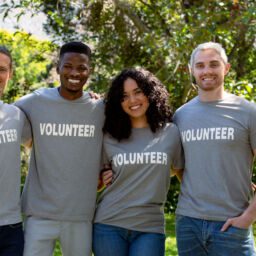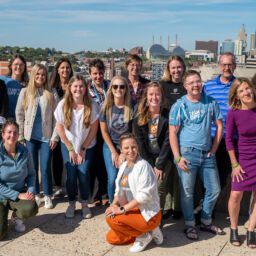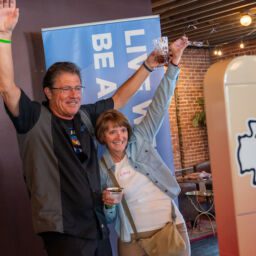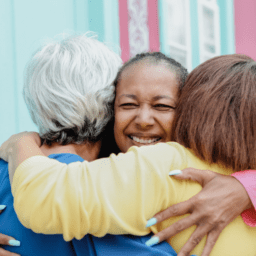The Davis Phinney Foundation is delighted to announce that the Delaware Valley Endeavor for Racial SolidarITY in PD (DIVERSITY PD) has been named a 2021 recipient of our Healthy Parkinson’s Communities™ grants program.
As an integral part of the Healthy Parkinson’s Communities initiative, the grants program aims to help us more fully realize our mission to help people with Parkinson’s live well today by funding programs and initiatives that are unique to the places and people they are designed to support, eliminating barriers, and expanding the possibility for all people to live well with Parkinson’s.
Delaware Valley Endeavor for Racial SolidarITY in PD (DIVERSITY PD)
Led by The Parkinson Council, the largest nonprofit organization for Parkinson’s advocacy in Philadelphia, DIVERSITY PD centers around relationship-building with two key community partners, who along with The Parkinson Council and many additional stakeholders will create a foundation for reaching and providing high-quality care to people with Parkinson’s who come from traditionally underserved communities.
“DIVERSITY PD came about as a result of some social justice efforts in the wake of the George Floyd movement,” says Wendy Lewis, Chief Executive Officer of The Parkinson’s Council. “We’re very fortunate in Philadelphia to have some amazing movement disorder centers, and the centers in our area decided to come together to do more to reach out, to educate, to provide a path of care and support for people living with Parkinson’s in communities of color.”

The Parkinson Council will collaborate with leaders from top academic movement disorders programs in the region (Penn, Thomas Jefferson, Drexel University, Cooper University), to harness the group’s collective resources in order to overcome barriers to access and experts in Parkinson’s in their region.
“Ordinarily, there is a healthy competition between local institutions working to improve care for people living with Parkinson’s,” the grant proposal explains. “However, we agreed that the vital issue of eliminating barriers to care and improving access requires a collaborative approach to reach patients from traditionally underserved communities.”
The first, and most important, step of the initiative, Lewis says, is building trust.
“We have been able to work with a very talented, very vocal member of the faith community at Salem Baptist Church, who identified for us some of our own shortcomings in terms of how we work. He helped us see how just because we exist, that does not mean that people want to come to us, or trust us and what we’re doing. This really brought to life how even though we have these amazing, shiny institutions and all this expertise at our fingertips, that doesn’t necessarily mean that people will come to us to learn about Parkinson’s.”
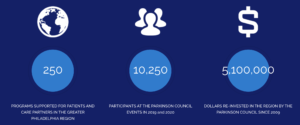
The pandemic, too, made this point more clear than ever. “It really put a spotlight on those communities that have been left out,” Lewis says. “We saw clearly that to reach these communities, we needed to go where they are. We need to provide education based on where they are. And folks who look like that community need to come out and provide the information, share the resources, and actually be the providers.”
The initiative’s short-term goals are to reach these traditionally underserved communities where they are by developing culturally relevant education and resources that honor their experiences. The group will work intentionally to forge bridges of trust to the community through local community health workers, physicians, support group facilitators, and exercise specialists who are already trusted leaders among the community.
“We need to identify the players who we can add to our team. Identify those people who can be the bridges to those communities. Who are they, and how can we work with them to determine how to share our resources?”
Another short-term goal is to ensure that local movement disorder specialists and centers fully understand how, and why, to help an entire family impacted by Parkinson’s, not just the person who has been diagnosed. “The entire family needs to be included in the process of care and treatment,” Lewis says, so helping to educate providers about the importance of this and how to go about it is a goal they aim to achieve.
Because there are so many misconceptions about Parkinson’s, Lewis says, there is also a need to dispel myths about Parkinson’s. “We need to listen and really hear what our community is saying about symptoms, family history, what their experiences have been. If we can help people feel comfortable and interested and willing to share these experiences, then we can help them connect with someone to listen who looks like them, who talks like them, who understands their journey, and who can provide resources tailored to their needs and experiences.”
In the longer term, the program aims to foster sustainable and trusting relationships between Philadelphia’s communities of color, Parkinson’s specialists, and stakeholders by providing education, services, and access to high-quality Parkinson’s care, including exercise, rehab, and mental health support. This will be done through collaborative efforts to ensure that the barriers to care that are caused by systemic, institutionalized racism are addressed.
“One of our long-term goals is to help people who are part of these systems realize that they play a role in preventing people from accessing high-quality care,” Lewis says. “We want to make sure that the leaders who make the decisions about the quality of care, who make the decisions about who gets treatment, and when, changes. That the mindset of the institution changes.”
“We want to create a community where everyone who comes through the doors of these institutions gets the same quality of care, same equitable treatment. We want them to understand that they have people in their corner, on their team, that they’re not alone. Our goal is to make sure that we create a pathway that makes this the norm, not something that is unusual.”
Lewis says the initiative will help these institutions change how they speak, who they talk to, what they talk about, and how they provide financial support to underserved communities.
“Our goal is to help the institutions who receive the education we provide understand that they have to make the investments to improve. We want them to understand that by being in a community, they have an obligation to make sure the whole community has the same level of care and the same level of treatment.”
A big goal, then, is to identify the actors and the leaders in that space who can help open doors and hold accountable the institutions who say they want their communities to be happy and healthy.
This work, of course, is far from easy. “It takes time. Building relationships and cultivating trust take a long time,” Lewis says. But what keeps her inspired and excited is the community around her.
“The Parkinson’s community in Philly brings me a tremendous amount of hope. They are humble. They’re gracious. They’re generous. They’re tenacious. They’re thoughtful. They’re tough. That’s what gets me up. I know how hard they’re working to live well. And because I know how hard they’re working, I am going to be right there in their corner.”
What also excites Lewis is how initiatives like DIVERSITY PD, where a regional nonprofit works with the help of a national organization, can be replicated and made even more impactful. “Working this way really makes this a movement,” she says. “It’s not top down. It’s bottom up.”
Learn More about Our Healthy Parkinson’s Communities Initiative
Healthy Parkinson’s Communities is an initiative led by the Davis Phinney Foundation to help support community leaders, volunteers, and advocates in the pursuit of making the places where we live, work, and play more inclusive and supportive for those living with Parkinson’s. Learn more here.




